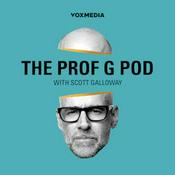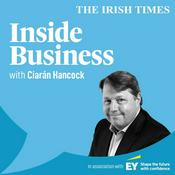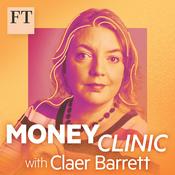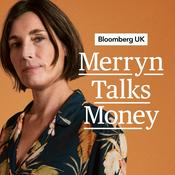78 episodes

Risk culture: AI, avatars and the war on fraud
18/11/2025 | 19 mins.
David discusses the evolving threat of industrialised and personalised fraud, exacerbated by AI. He emphasises the urgent need for continuous learning and preparedness among accountants and professionals. He highlights the importance of data quality in AI models, the rise of deepfake scams, and the necessity of comprehensive risk assessments and insurance. He stresses the critical need for boards to invest in AI governance and data strategies to mitigate risks and protect against advanced threats.

Risk culture: Fraud thrives where culture fails
18/9/2025 | 17 mins.
Ashu Sharma, a fraud expert, discusses the evolving nature of fraud, emphasizing the shift from opportunistic to systematic fraud, where entire organizations can be compromised. He highlights the importance of understanding and addressing the cultural aspects that enable fraud, such as incentive structures and fear of retaliation. Sharma criticizes the three lines model for its siloed approach and advocates for a resilience-based thinking that integrates fraud prevention into business decisions. He also stresses the need for proactive measures, including encouraging employees to report unusual activities and leveraging AI for anomaly detection, while not ignoring the human element in fraud prevention.

Risk culture: Reimagining true and fair accounting
18/7/2025 | 11 mins.
We discuss how financial accounts can and should include more complete information about the often-hidden material risks, such as climate, cyber, and fraud – helping boards make better informed, forward-looking decisions.

Risk culture: Who’s watching the board?
17/6/2025 | 27 mins.
Vera Cherepanova discusses ethical leadership, from boardroom blind spots to the ethical implications of AI and investor short-termism, this conversation is a call to action for those who want governance to matter. She highlights the importance of boards fostering ethical reflection and embedding values into strategy, especially amidst ESG policy changes and the new US administration's executive orders. Cherepanova notes three types of corporate responses to ESG challenges: withdrawal, green hushing, and public resistance. She stresses the need for boards to ask good questions, formulate great questions, and recognize their role in defining organizational values. Cherepanova also introduces a new board ethics and compliance assessment tool to help boards structure their ethical frameworks.

Risk culture: The art of decision-making
01/5/2025 | 18 mins.
Ben discusses the current state of risk management, emphasizing its disconnection from organizational decision-making. He highlights the need for good decision-making, advocating for a shift from traditional risk management to a focus on decision quality. He introduces the concept of "benevolent subversion," a guide with 22 practical techniques to embed good decision-making in organizationsand stresses the importance of management accounting in understanding business contexts and combating fraud effectively.
More Business podcasts
Trending Business podcasts
About Policy & Insights
Listen to Policy & Insights, The Room Where It Happened and many other podcasts from around the world with the radio.net app

Get the free radio.net app
- Stations and podcasts to bookmark
- Stream via Wi-Fi or Bluetooth
- Supports Carplay & Android Auto
- Many other app features
Get the free radio.net app
- Stations and podcasts to bookmark
- Stream via Wi-Fi or Bluetooth
- Supports Carplay & Android Auto
- Many other app features


Policy & Insights
download the app,
start listening.
































